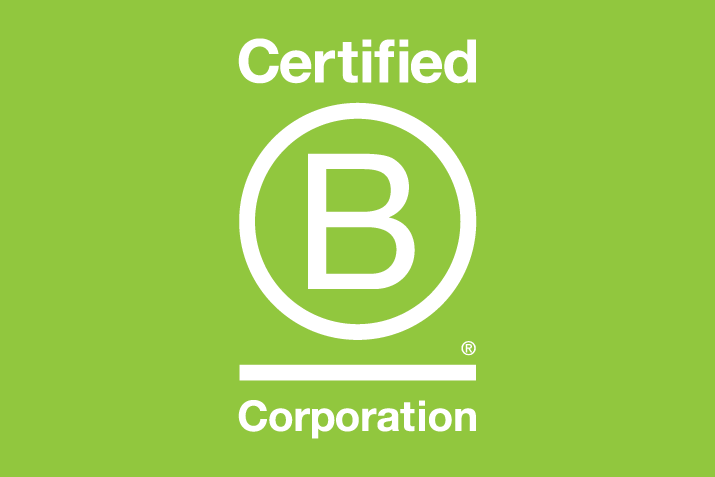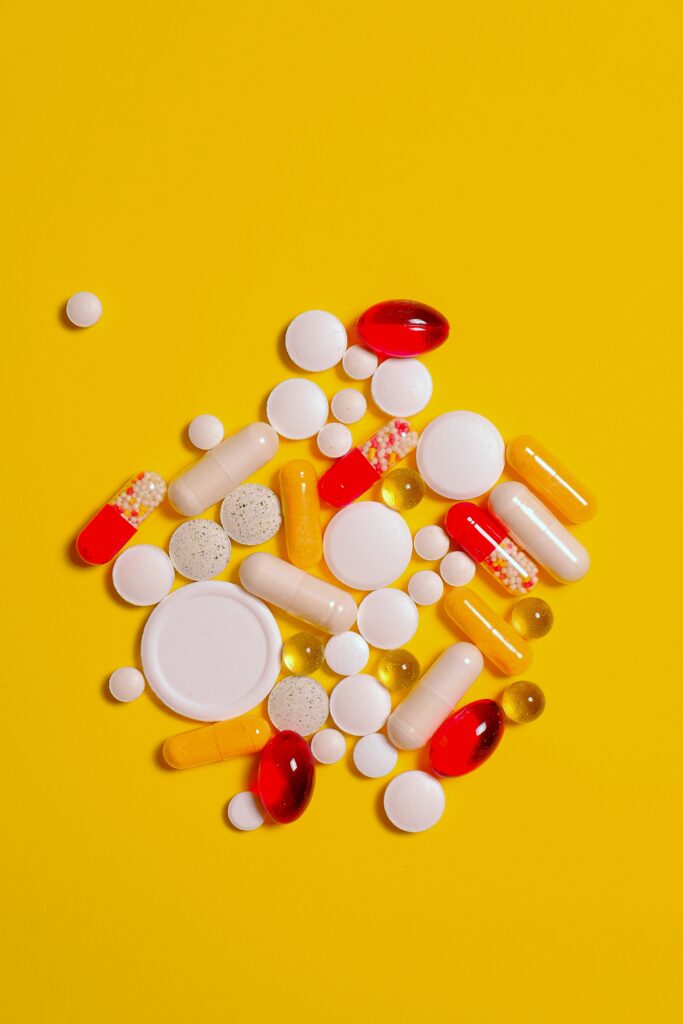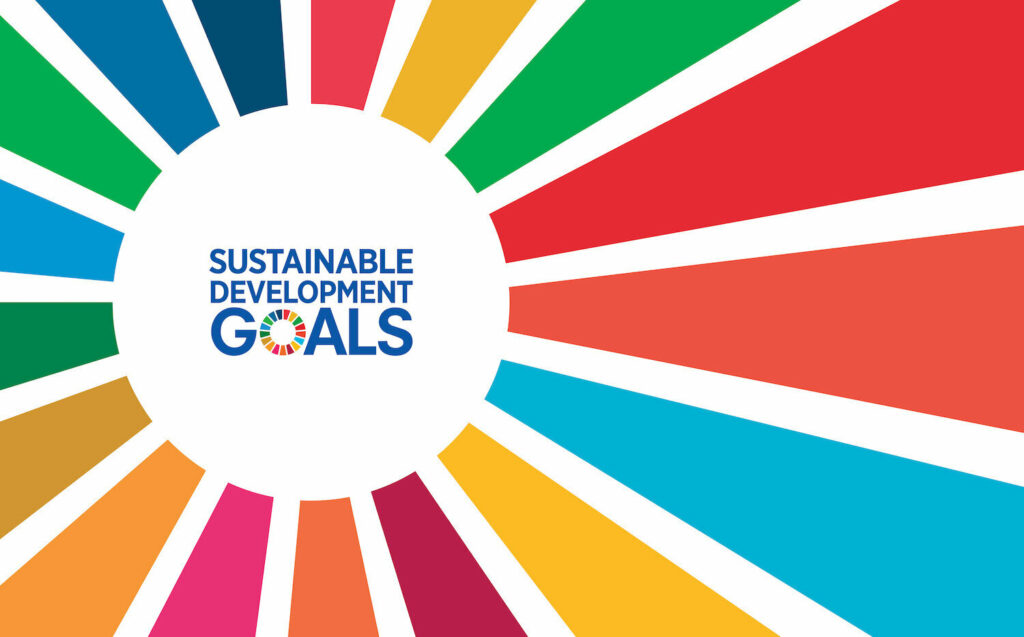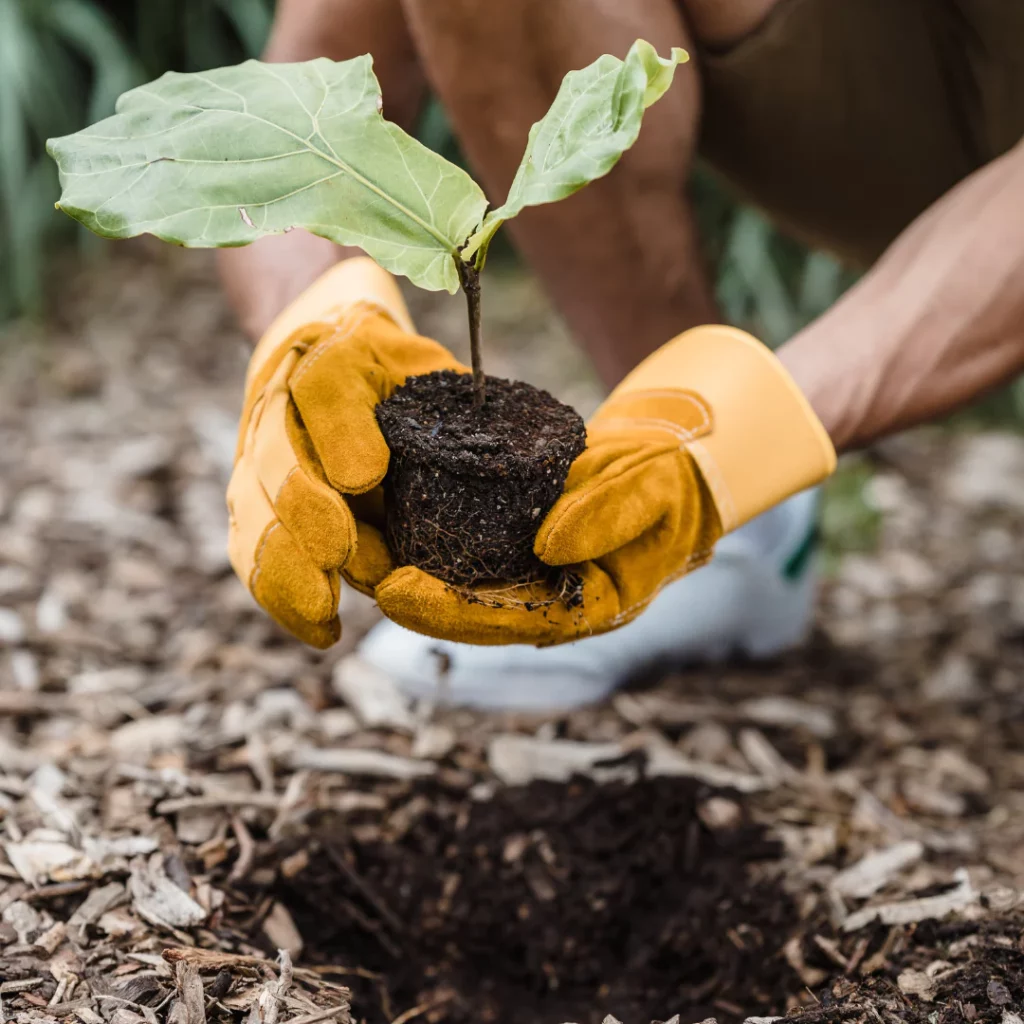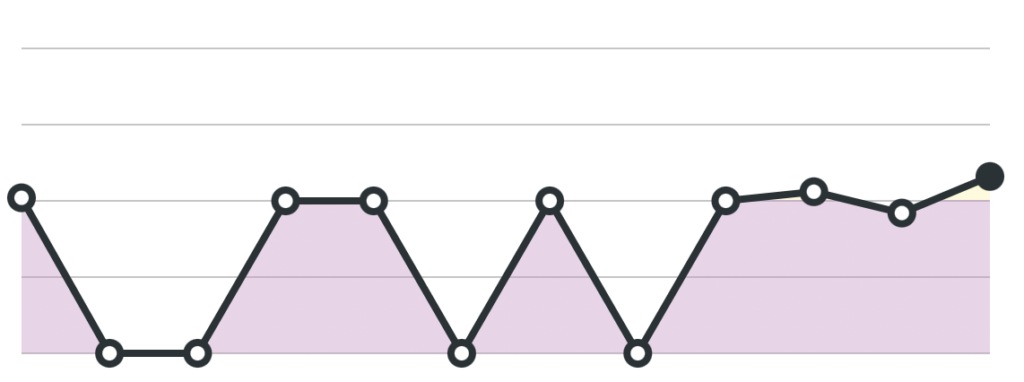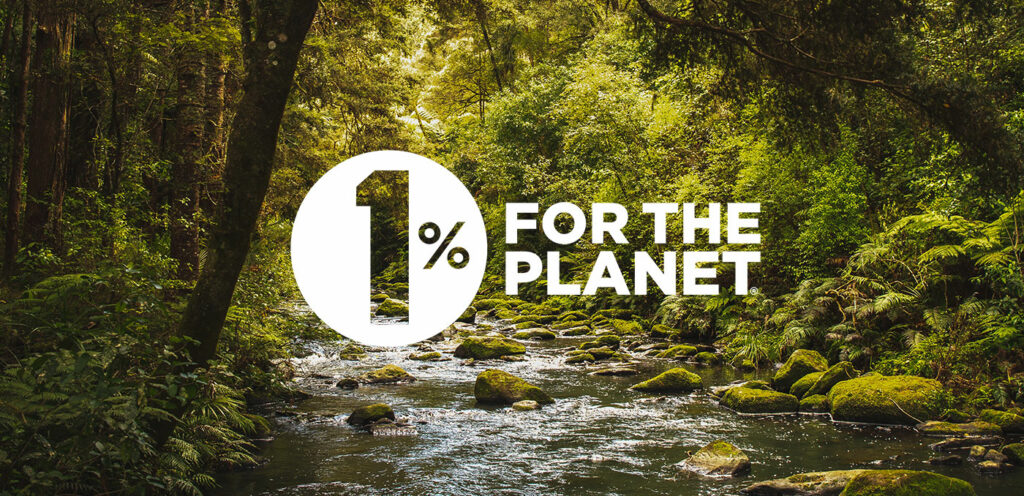What Does Non-GMO Mean? How the Non-GMO Project Creates Impact
What does non-GMO mean? How does the Non-GMO Project certify their products? We break it down for you.
July 27, 2023
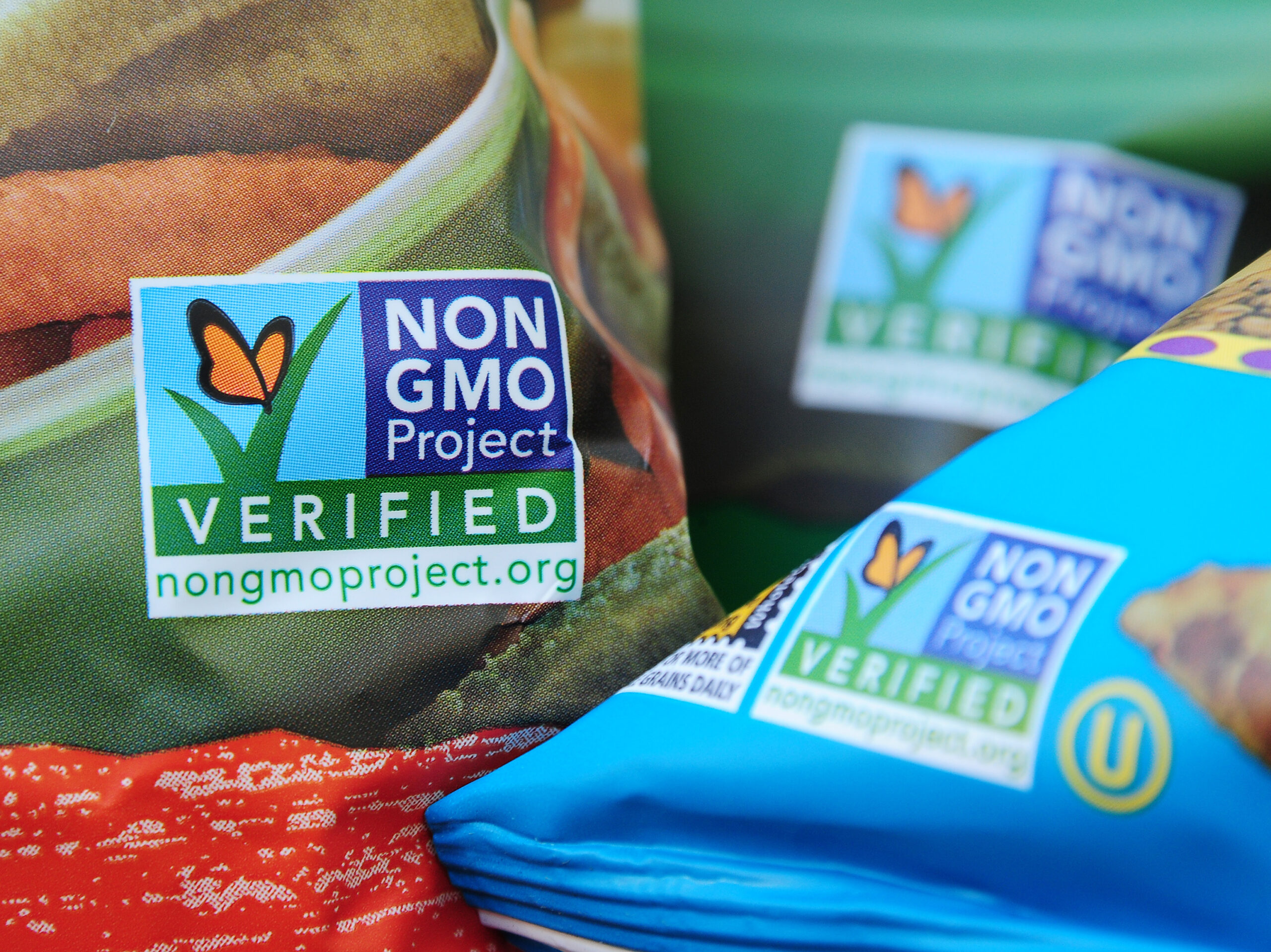
A 2020 report shows that over half of Americans are worried about the health impacts of genetically modified foods (aka GMOs). But at the same time… GMO food is everywhere and pretty hard to avoid. Nonprofits like the Non-GMO Project help you discover what is actually in your food. In this guide, we’ll answer the question: What does non-GMO mean? And how does the Non-GMO Project certify their products?
What does non-GMO mean?
GMO stands for “genetically modified organism”, meaning it contains DNA that has been altered using genetic engineering. The first genetically engineered plants for human consumption came around in the 1990s – and the industry has exploded since then.
When it comes to GMO food, produce is the most common, but certain animals like salmon have also been modified to mature faster.
90% of today’s corn, soybeans, and sugar beets on the market are GMOs.
Why? GMOs are more resistant to disease and pests, produce higher yields, and have a longer shelf life.
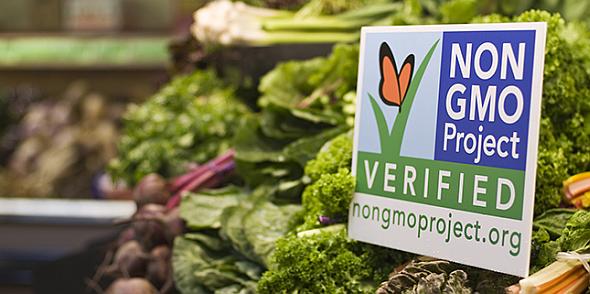
Are GMOs safe?
65 countries including Australia, Japan, and the European Union require genetically modified food to be labeled. Under the USDA’s National Bioengineered Food Disclosure Standard some products in the USA must be labeled… but not all.
And there are GMOs in more places than you might think.
Processed foods that contain ingredients from corn, soy, canola, or sugar beet are likely to contain GMOs. Livestock or other animals might consume genetically modified products in their feed, as well.
GMOs are also common in things like corn syrup, sucrose, flavorings, vitamins, enzymes, oils, fats, sweeteners… you name it.
To date, there is no scientific consensus on the safety of GMOs. Most of the research we currently have are from biotech companies, and there have been no long-term epidemiological studies investigating impacts on human health.
When it comes to the safety of GMOs, you’ll have to decide for yourself and your family. The biggest thing here is being aware of when and how you are consuming GMOs. That’s where the Non-GMO Project comes in.
GMOs Impact on the Environment
GMOs negatively impact both farmers and the environment. Here’s how:
- Crop management: the widespread adoptions of certain GMO crops can lead to resistant pests and weeds. Farmers have to adjust their crop management practices to combat pests (sometimes called “superweeds” or “superbugs” that evolve to overcome GMO defenses). This also leads to increased herbicides and pesticides in some cases.
- Dependency on seed companies: biotechnology companies have patents and licensing agreements that control the distribution of their genetically engineered seeds. Farmers aren’t able to save and replant seeds from their harvested crops. This makes the farmers dependent on the seed companies, and paying higher seed costs.
- Trade considerations: some countries have strict regulations or public concerns regarding GMOs. This may impact where farmers can export their crops to in certain markets.
- Biodiversity: GMO crops reduce biodiversity, especially if a modified crop becomes dominant in a particular region. Monoculture practices associated with some GMO crops can make the entire ecosystem more vulnerable to pests and diseases.
- Cross-contamination: GMO crops can crossbreed with non-GMO crops, leading to unintended genetic modifications in non-GMO populations. It’s called gene flow, and can have unpredictable ecological consequences.
That said, others argue that GMOs can benefit farmers and the environment as well, as they increase crop yield and can reduce pesticide usage.
But… in the first 20 years of growing GMOs, the use of toxic herbicides, such as Roundup (glyphosate), increased fifteenfold.
Glyphosate is one of the most commonly used herbicides in our world today and is used in farming methods in the United States and beyond. There’s also been a number of lawsuits about this controversial chemical.
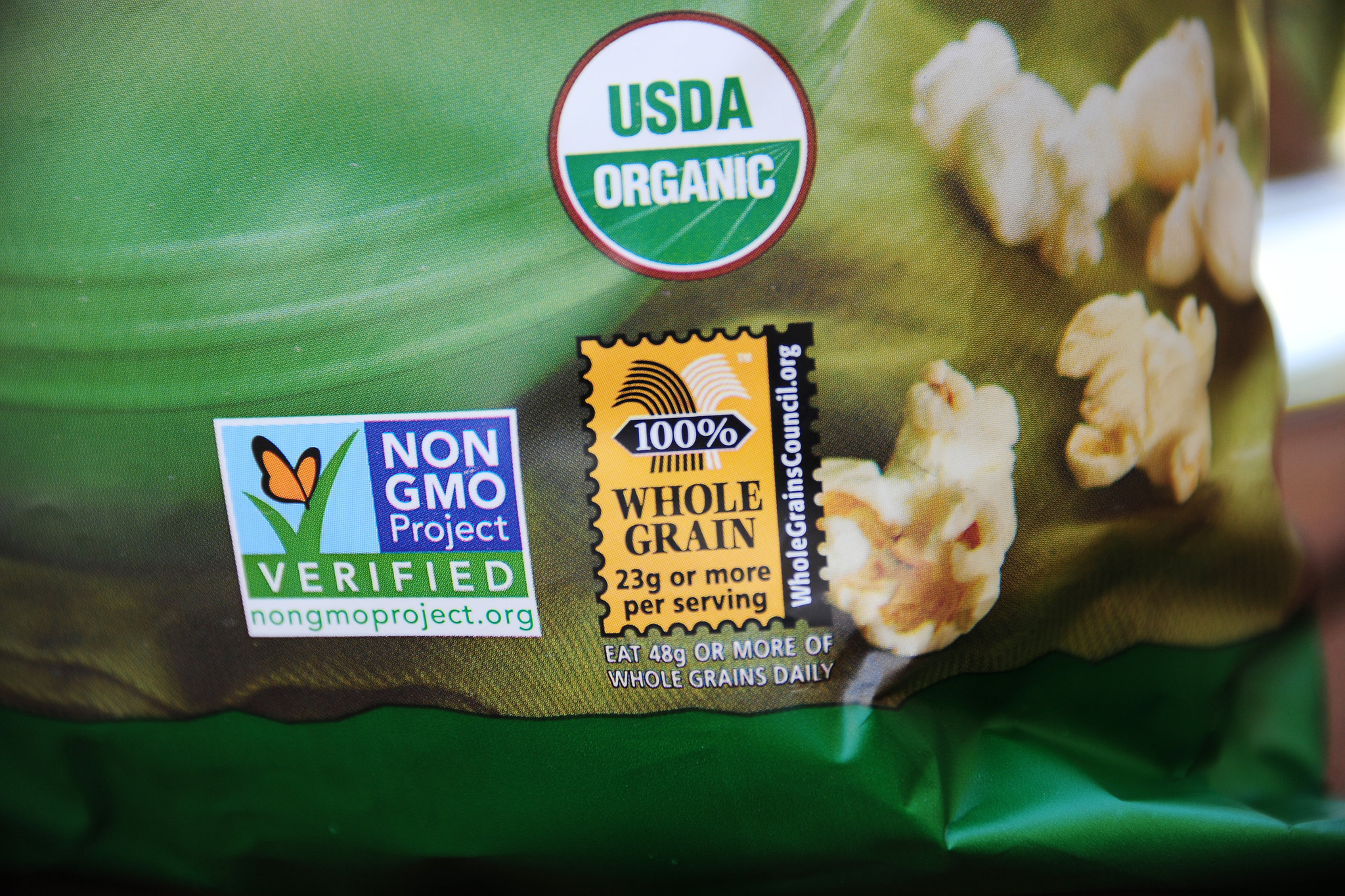
All About the Non-GMO Project
One of the leading organizations dedicated to promoting Non-GMO practices and providing consumers with transparent information is the Non-GMO Project.
Founded in 2007, the Non-GMO Project is a non-profit organization committed to preserving and building sources of non-GMO products, educating consumers, and offering third-party verification for non-GMO products.
And becoming Non-GMO Project verified is no small feat. Their rigorous certification process ensures you can trust that products labeled non-GMO meet the highest standards.
Manufacturers willing to obtain the Non-GMO Project Verified seal for their products must undergo a detailed evaluation, including ingredient traceability, segregation practices, and rigorous testing of at-risk ingredients.
Only then can they receive the coveted Non-GMO Project Verified Seal.
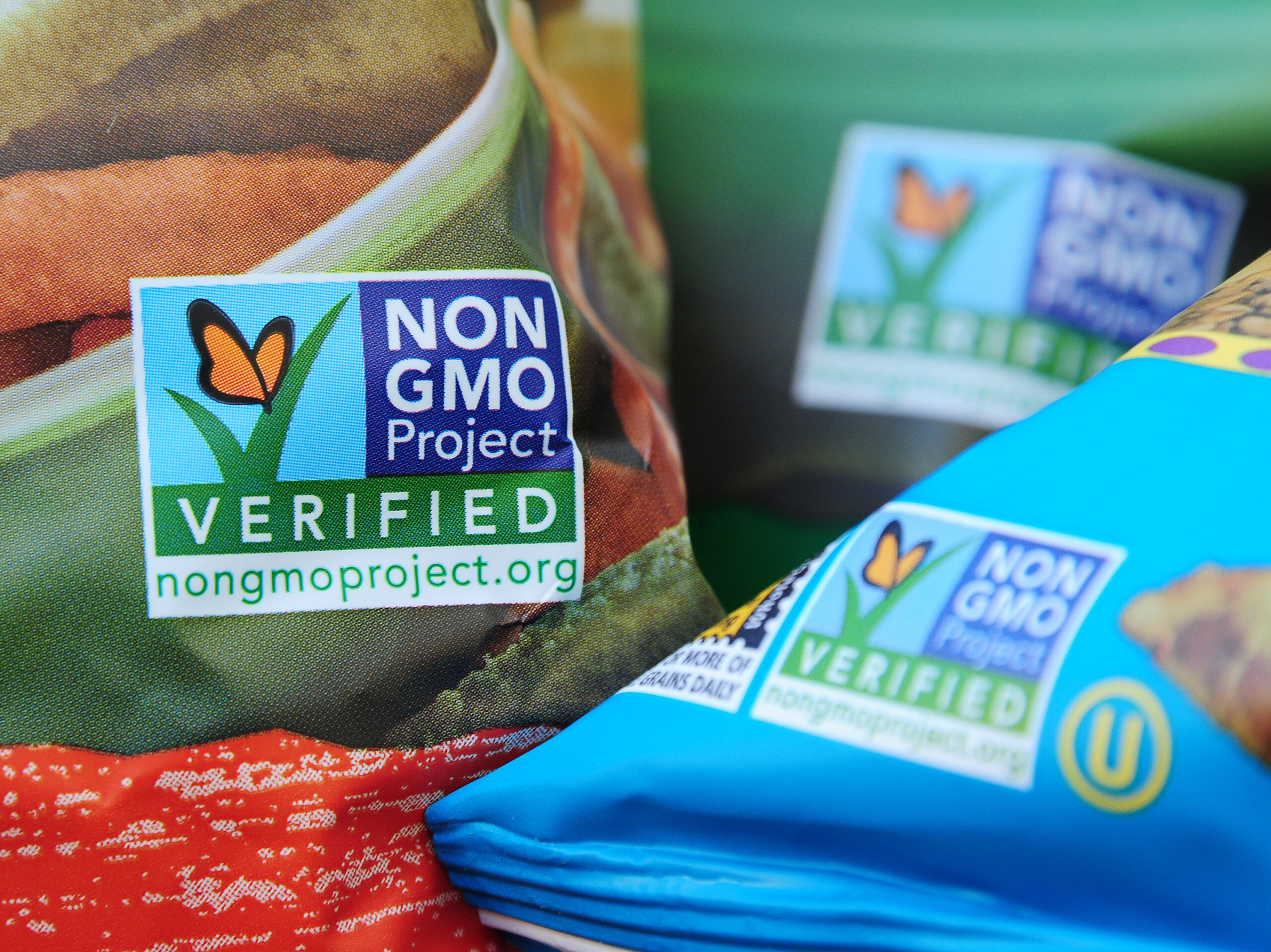
Karma Wallet & Non-GMO Project
At Karma Wallet, we believe that consumers like you deserve all the information about the brands and products you support. And that includes the food you eat!
We’ve partnered with the Non-GMO Project to integrate their data as one of our 30+ data sources.
What does this mean for you? Well, it makes your life a lot simpler.
Through Karma Wallet you can now sort through 15,000+ company ratings to find companies that are Non-GMO Project Verified.
Whether you choose Non-GMO for health, environmental, or ethical reasons, we’ve partnered with Non-GMO Project to make it easier than ever to find and support brands dedicated to creating products without genetically engineered ingredients.
Explore Non-GMO Project Verified brands below! Head to our Browse Companies page, click “Filter By” and select the Value “Non-GMO Project Verified Products”.




